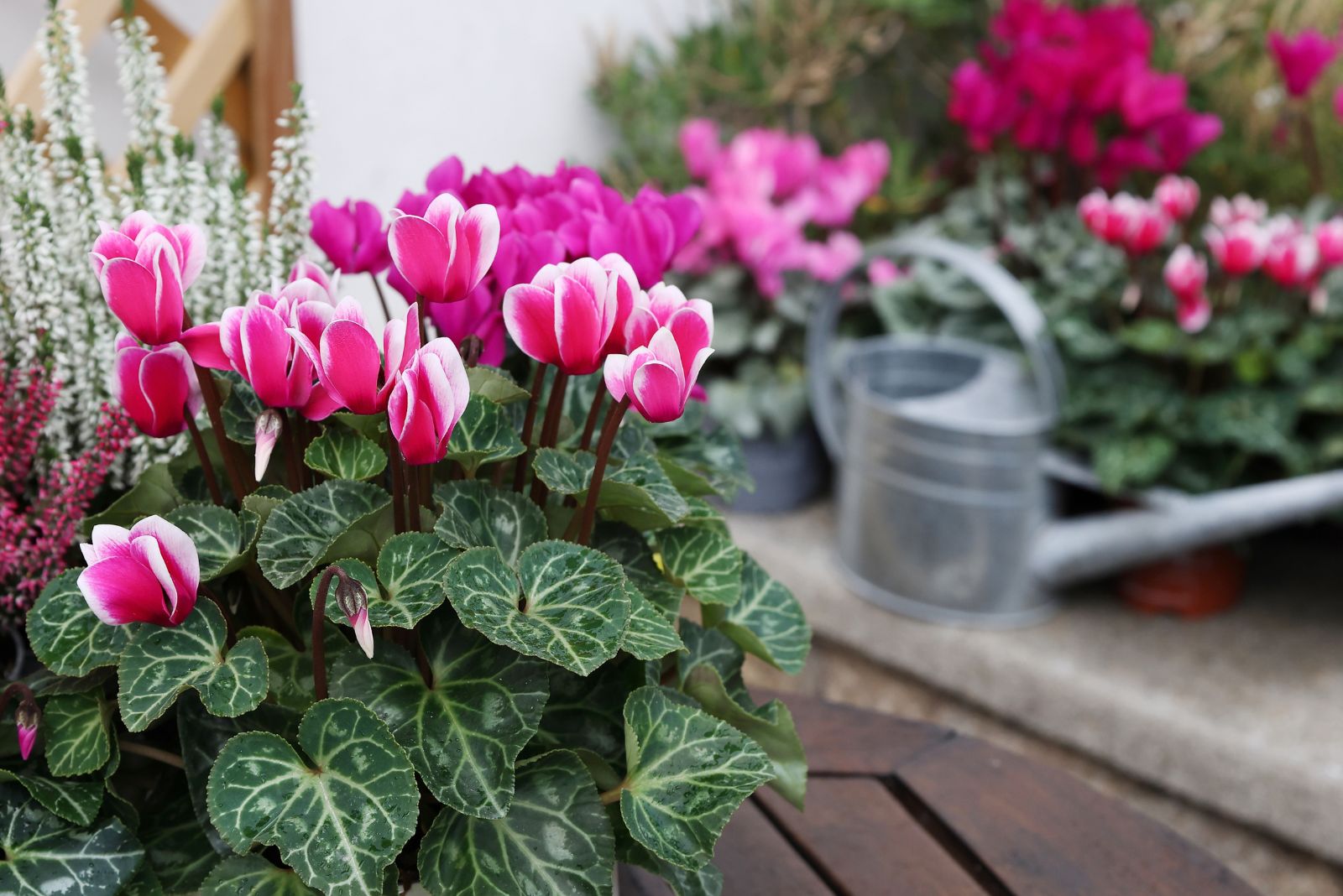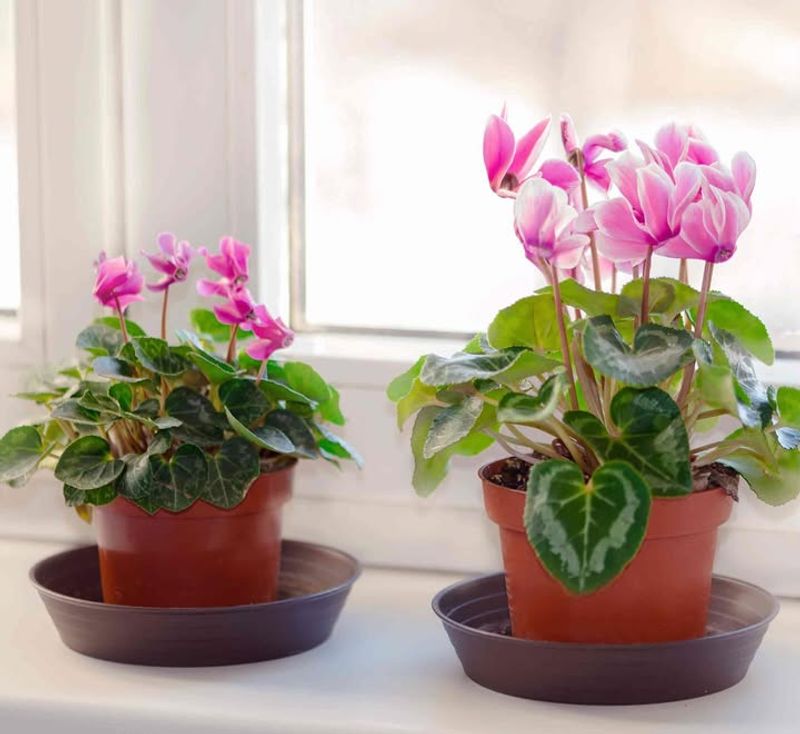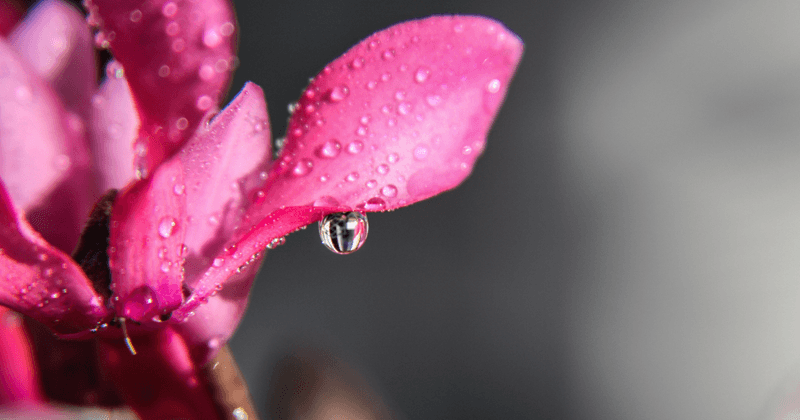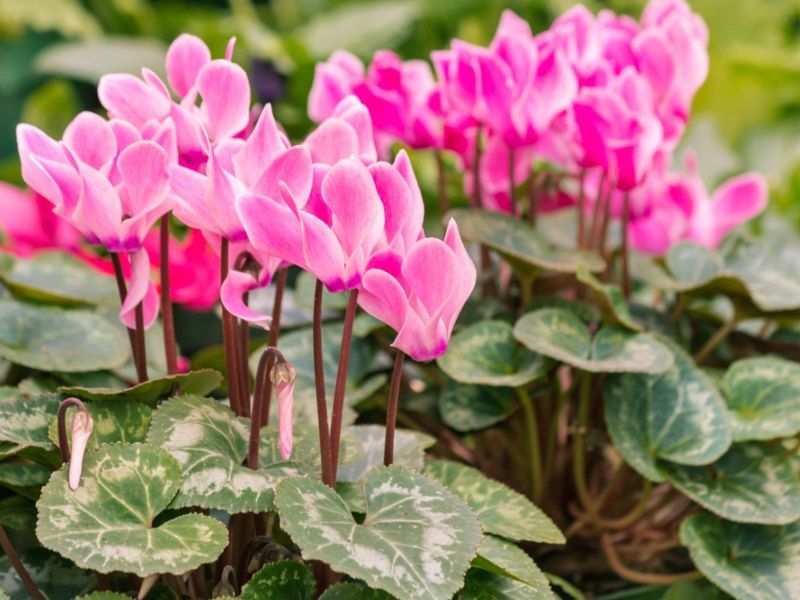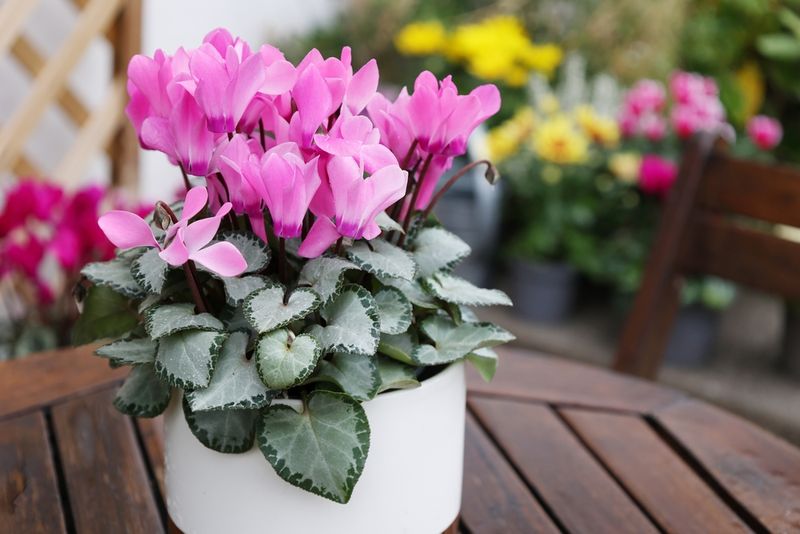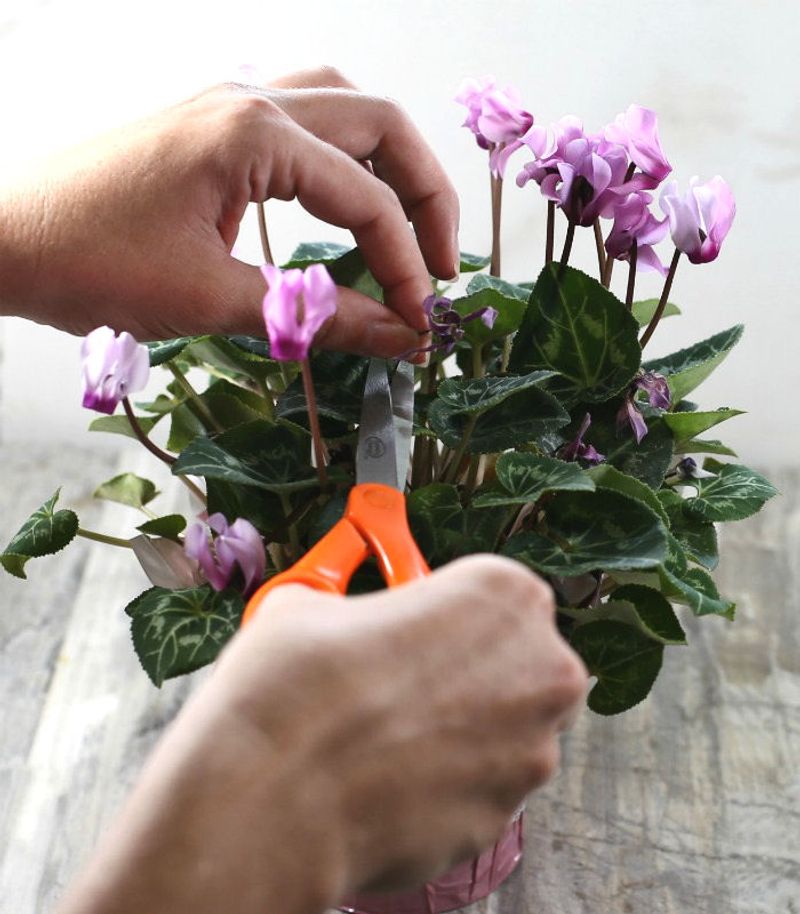Cyclamen can be a bit picky in December, but Georgia gardeners have found a trick that keeps these winter beauties blooming when the cold settles in. Too much warmth and they droop, too much moisture and they give up the ghost.
With the proper balance, though, their colors shine bright through the season. This simple approach, which includes providing cool temperatures and proper watering, has become a go-to method for gardeners who want blooms that don’t quit when December rolls around.
Cool Temperatures Mirror Their Natural Habitat
Cyclamen originally come from Mediterranean regions where winters stay mild and summers bring dormancy. Georgia’s December temperatures perfectly match what these plants crave naturally.
When temperatures hover between 50 and 65 degrees Fahrenheit, cyclamen roots stay active and flowers keep developing. Warmer conditions actually stress the plant and cause blooms to fade quickly.
Placing cyclamen in cool spots like north-facing porches or unheated sunrooms gives them the climate they need to flourish throughout the winter months.
Proper Watering Prevents Root Rot
Did you know cyclamen tubers are incredibly sensitive to overwatering? Too much moisture sitting on the crown causes the entire plant to rot within days.
Bottom watering works best for cyclamen because it keeps the tuber dry while letting roots absorb what they need. Simply place the pot in a saucer of water for 15 minutes, then drain completely.
Check soil moisture by touching it an inch below the surface before watering again to avoid drowning your beautiful blooms.
Humidity Levels Stay Balanced With Careful Watering
Georgia’s winter air can get surprisingly dry indoors when heaters run constantly. Cyclamen appreciate moderate humidity around their leaves but hate wet feet.
Smart watering practices help maintain the right moisture balance in the air surrounding your plants. Grouping several cyclamen together creates a mini humid microclimate that benefits all of them.
You can also set pots on pebble trays filled with water, ensuring the pot bottom stays above the waterline for perfect humidity without sogginess.
Bloom Production Increases With Temperature Control
Warmth makes cyclamen think it’s time to go dormant, shutting down flower production completely. Cool temperatures signal the plant that growing season is still happening.
When Georgia gardeners maintain temperatures below 68 degrees, cyclamen respond by producing wave after wave of stunning flowers. Each bloom lasts longer in cooler conditions too.
A single plant can produce dozens of flowers throughout December and January when temperatures stay consistently cool and comfortable for the plant’s natural cycle.
Water Quality Affects Flower Development
Cyclamen can be picky about their water source, and chlorine-heavy tap water sometimes causes leaf tips to brown. Room temperature water prevents shock to sensitive roots.
Letting tap water sit overnight allows chlorine to evaporate, making it safer for your plants. Rainwater collected in clean containers works wonderfully too.
Consistent watering with quality water keeps foliage lush and green while supporting continuous bloom production throughout Georgia’s mild winter season without chemical buildup in soil.
Stress Reduction Through Proper Care Extends Blooming Season
Plants under stress from heat or inconsistent watering put energy into survival rather than making flowers. Cyclamen shut down quickly when conditions aren’t right.
By maintaining cool temperatures and watering correctly, Georgia gardeners eliminate major stress factors. Happy cyclamen reward this care with months of continuous blooming instead of just weeks.
Some well-tended cyclamen keep flowering from November through March, providing cheerful color during the dreariest months when gardens need brightness most.

